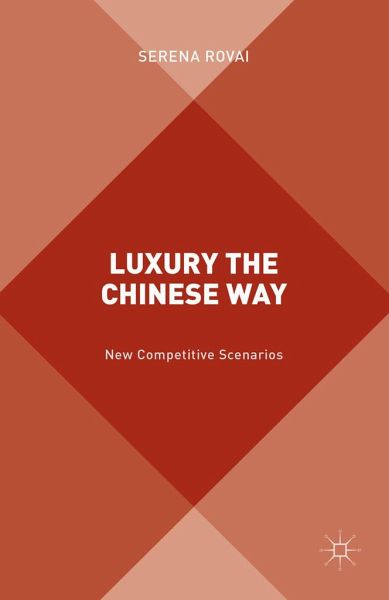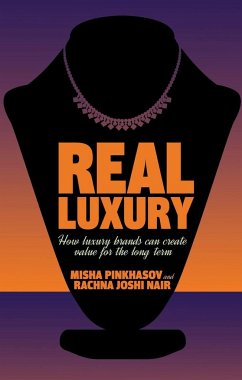
Luxury the Chinese Way
The Emergence of a New Competitive Scenario
Versandkostenfrei!
Versandfertig in 6-10 Tagen
53,99 €
inkl. MwSt.
Weitere Ausgaben:

PAYBACK Punkte
27 °P sammeln!
China's love for luxury is not a phenomenon brought on by the contemporary luxury market, but has been a part of Chinese culture and history for generations. The Chinese luxury industry is again re-emerging along modern cultural and socio-economic contexts, and is taking the market by storm. Luxury the Chinese Way identifies the main strengths and opportunities associated with the Chinese luxury market, explains the influence of 'Chinese characteristics' on its development and mode of operations, and reflects on the challenges associated with diverse consumption orientations. Using references ...
China's love for luxury is not a phenomenon brought on by the contemporary luxury market, but has been a part of Chinese culture and history for generations. The Chinese luxury industry is again re-emerging along modern cultural and socio-economic contexts, and is taking the market by storm. Luxury the Chinese Way identifies the main strengths and opportunities associated with the Chinese luxury market, explains the influence of 'Chinese characteristics' on its development and mode of operations, and reflects on the challenges associated with diverse consumption orientations. Using references from the fields and real-life data, this book provides a comprehensive overview on China's innovation in luxury, and is an important contribution to the study of the phenomenon that is the global luxury industry.














